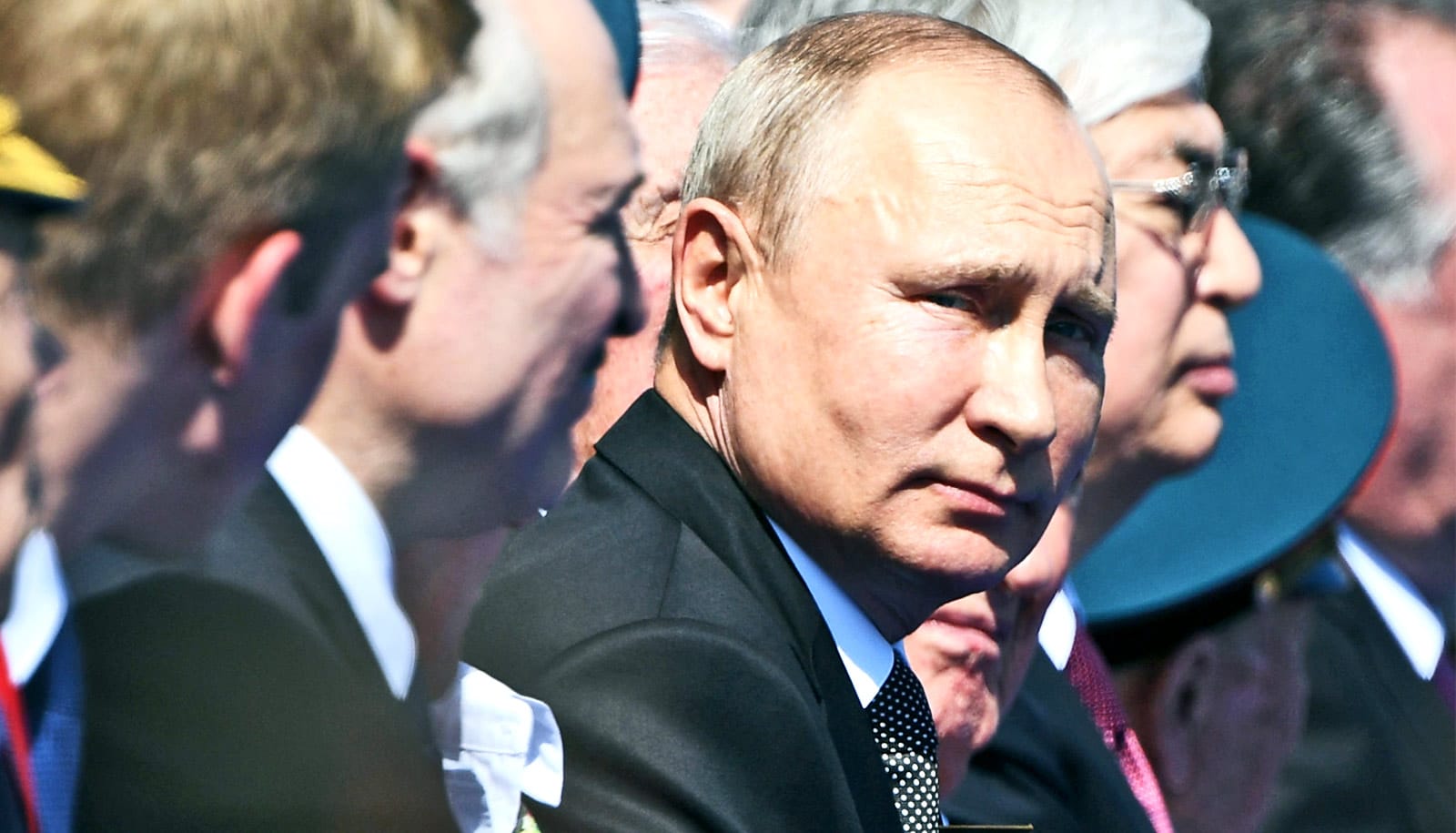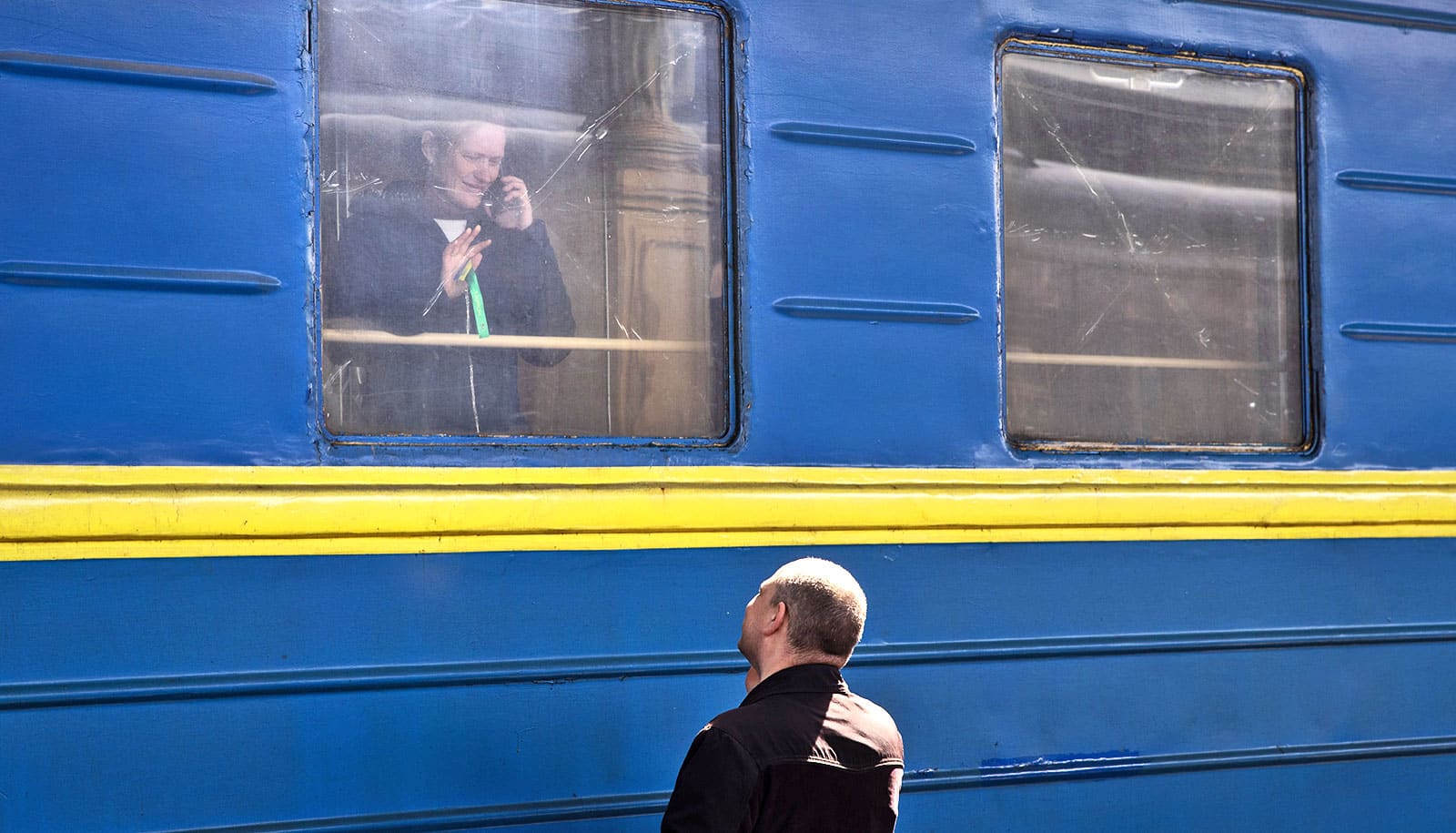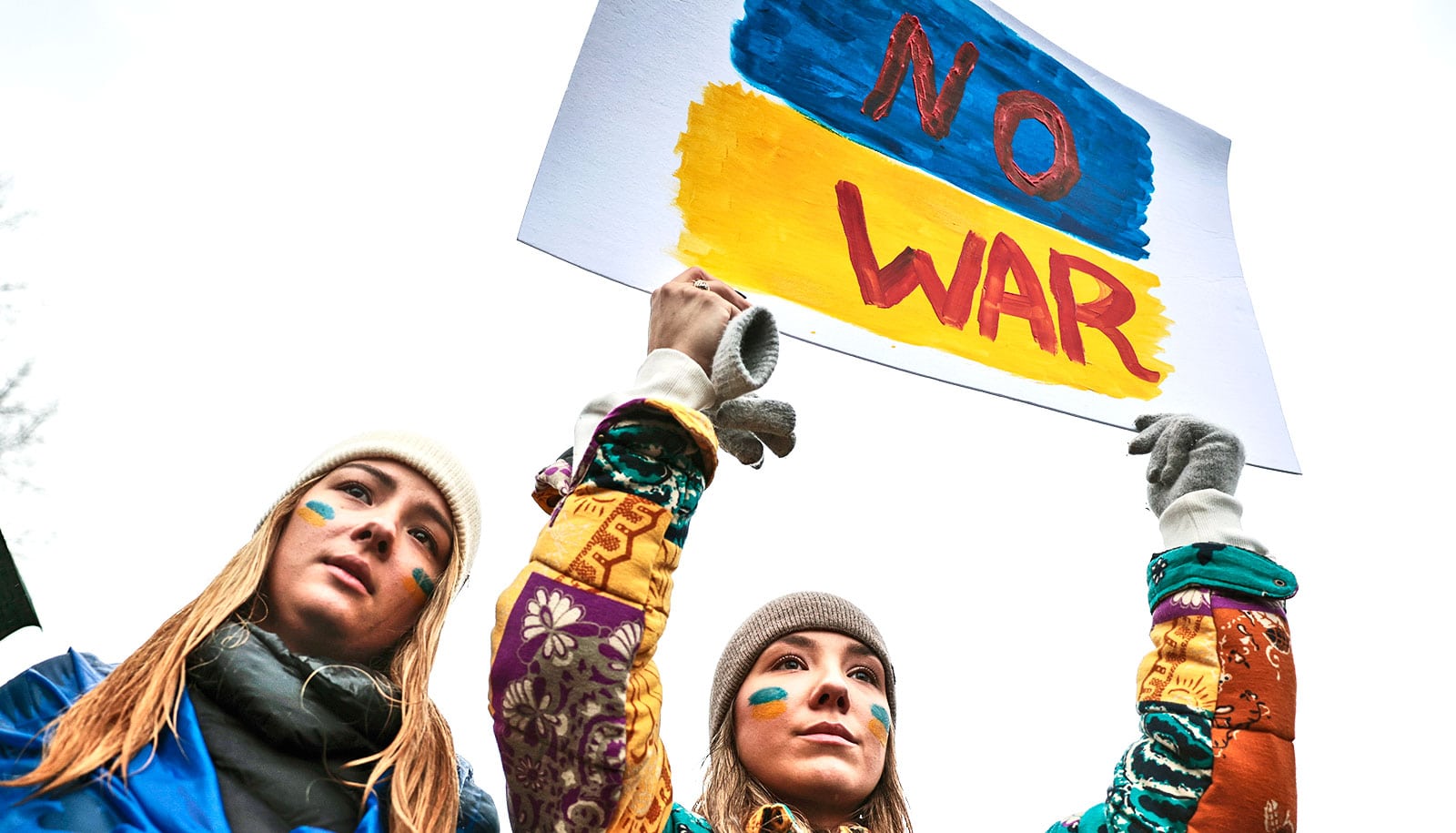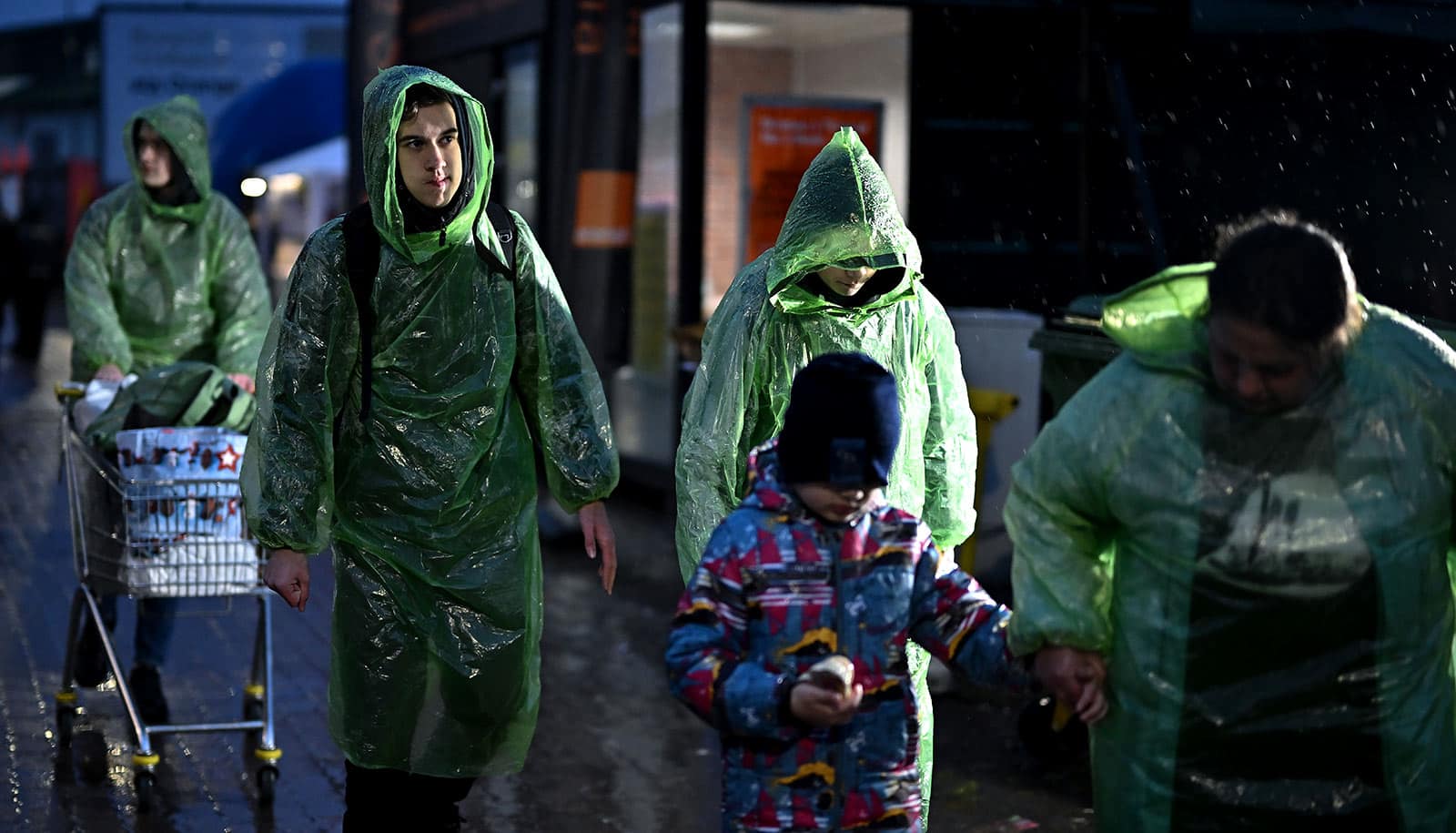The US must do what it can to prevent Russian military from crossing the nuclear threshold, Scott Sagan argues.
Nuclear weapons are not just a force used to deter another state from attacking, they can also be a shield behind which one can engage in aggression, says Sagan, the co-director of the Center for International Security and Cooperation at Stanford University. Sagan’s research examines nuclear strategy, nuclear proliferation, the ethics of war, and public opinion of combat.
“…Putin is the most dangerous man in the world.”
Russian President Vladimir Putin’s reminder of Russia’s nuclear arsenal at the beginning of its recent invasion into Ukraine is a warning to the United States and other NATO members that if they get directly involved in the conflict, there could be a risk of nuclear escalation, Sagan says.
It is estimated that Russia’s stockpile includes 4,477 nuclear warheads, according to a report by the Bulletin of the Atomic Scientists.
Here, Sagan discusses Putin’s nuclear threat and what could happen if Russia crosses the nuclear threshold, a line that hasn’t been crossed since 1945, when the US detonated two atomic bombs in Japan:
Back in February, Putin publicly ordered his Minister of Defense to put Russian nuclear forces into “special combat readiness.” He also warned in a televised statement that if another nation interferes in the operation, “Russia will respond immediately, and the consequences will be such as you have never seen in your entire history.” Was Putin threatening a nuclear war?
Putin was engaging in nuclear saber-rattling, reminding NATO leaders that he has a large nuclear arsenal and that Russian military doctrine holds open the option of using nuclear weapons first if it is losing a war and its vital interests are threatened. However, the order to go into “special combat readiness” was not part of the Russian military lexicon and US officials saw no actual nuclear alert activities underway.
But it’s important to understand that nuclear weapons are not just a force used to deter another state from attacking. They can also be a shield behind which one can undertake aggression. The Pakistanis moved soldiers into Indian-held Kashmir soon after Islamabad first tested nuclear weapons. Saddam Hussein wanted nuclear weapons and told his senior generals that if he got them, he would order a conventional attack to take back the West Bank and Golan Heights from Israel.
Similarly, Putin was brandishing his nuclear arsenal to remind the US and other NATO powers that if they get directly involved in his war of aggression in Ukraine, there could be a risk of nuclear escalation.
Is Putin’s nuclear threat working?
Only in part. President Joe Biden did rule out direct engagement when he says the US and NATO would not enforce a “no-fly zone” over the Ukraine. That policy would have meant that NATO aircraft would be shooting down Russian aircraft, which of course is an act of war, creating the risk of escalation.
But Putin’s threats did not deter Washington and many NATO governments from “interfering” in Moscow’s attempt to overthrow the Zelensky government in many other ways, short of direct combat with the Russians.
We have given the Ukrainian government millions of dollars’ worth of weapons, including air defense systems and advanced anti-tank missiles, and have provided intelligence support. Without such rapid resupply of military equipment, the Ukrainians might well have lost the war already. Now they have turned back the Russian assault on Kyiv and Putin appears to have shifted his war aims from overthrowing the elected Ukrainian government to “liberating” the Donbas in Eastern Ukraine and possibly annexing it into Russia as he did with Crimea in 2014.
CIA director William Burns recently said, “None of us can take lightly the threat posed by a potential [Russian] resort to tactical nuclear weapons or low-yield nuclear weapons.” Are you worried about the Russians using nuclear weapons against the Ukrainians if the war continues to go badly for Moscow?
Yes. I recently argued in Foreign Affairs that Putin is the most dangerous man in the world.
Putin could order the Russian military to drop a single nuclear bomb on a Ukrainian city to try to coerce the Zelensky government into immediately surrendering. This frightening scenario is not fanciful. It is, after all, effectively what the United States did to Japan in 1945.
We can only hope that in this situation, senior Russian officers would tell Putin that such a strike would be illegal, a violation of the Geneva Conventions, and refuse to comply. Some national security officials are Putin’s cronies, like Defense Minister Sergei Shoigu, but the military leadership is more independent. The United States must do what it can to reinforce any reluctance by the Russian military to cross the nuclear threshold.
Washington should be prepared to take further military steps if Moscow crosses the nuclear threshold. Senior officials should not specify exactly what kind of military response would be ordered, but a clear statement that crossing the nuclear threshold would bring the gravest consequences for Russia and for Putin might help deter such action. And the US should remind Russian military leaders that any nuclear use against a Ukrainian city will be treated as a war crime and that they, not just Putin, will be treated as war criminals.
The Russian military may not mind targeting civilians, as it has shown in its operations in Chechnya, in Syria, and now in Ukraine. But they do care about protecting themselves. Do they really want to live in a world in which they have broken the tradition of nuclear non-use that has existed since 1945? They may think twice about agreeing to drop nuclear bombs if they know that they may one day find themselves permanently imprisoned for their actions. And if Putin gives such a reckless, dangerous order, it may just be the last straw that makes other leaders in Moscow decide that he finally has to go.
Source: Stanford University



